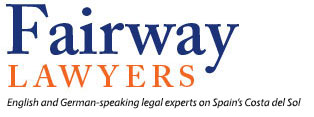QUESTION
I am a German citizen who has recently purchased an apartment on the Costa del Sol.
I usually only come to Spain with my wife and family in the summer and for the occasional trip out of season.
In view of these circumstances I would like to know what my tax obligations are in Spain.
ANSWER
In principle, the mere fact of owning an urban property in Spain subjects the owner to the following three taxes: Non-Resident’s Income Tax, Wealth Tax and annual rates tax.
If the property is jointly owned by both spouses, they shall be obliged to declare separately, although this is not applicable in the case of the rates tax.
For all dealings with the Spanish tax administration it is necessary to have previously obtained a Tax Identity Number.
The Non-Residents’ Income Tax base is calculated by applying a percentage to the official rateable value of the property. Generally speaking, this percentage is 1.1 per cent but if the official rateable value has not been revised by the authorities the percentage applicable will be two per cent. The tax quota is 25 per cent of the estimated income earned on the property.
Wealth Tax is charged on assets situated in Spanish territory. In the case of real property, the highest of the following three values is taken in order to calculate the amount of tax payable: the official rateable value, the acquisition price or the value assigned by the tax administration (which usually coincides with the acquisition value). The tax quota is obtained by applying a scale percentage to the value to be declared.
Both of the above taxes are an obligatory requirement and owners should not wait to be informed by the tax authorities of their duty to present them.
Both taxes may be declared using the simplified standard form “214”. If more than one property is owned, a different form should be used although the manner of calculating the tax is identical.
The rates tax is calculated automatically by the relevant local town hall according to where the property is located. The tax payable is obtained by applying a certain percentage established by the local council to the rateable value of the property and is paid on an annual basis.

